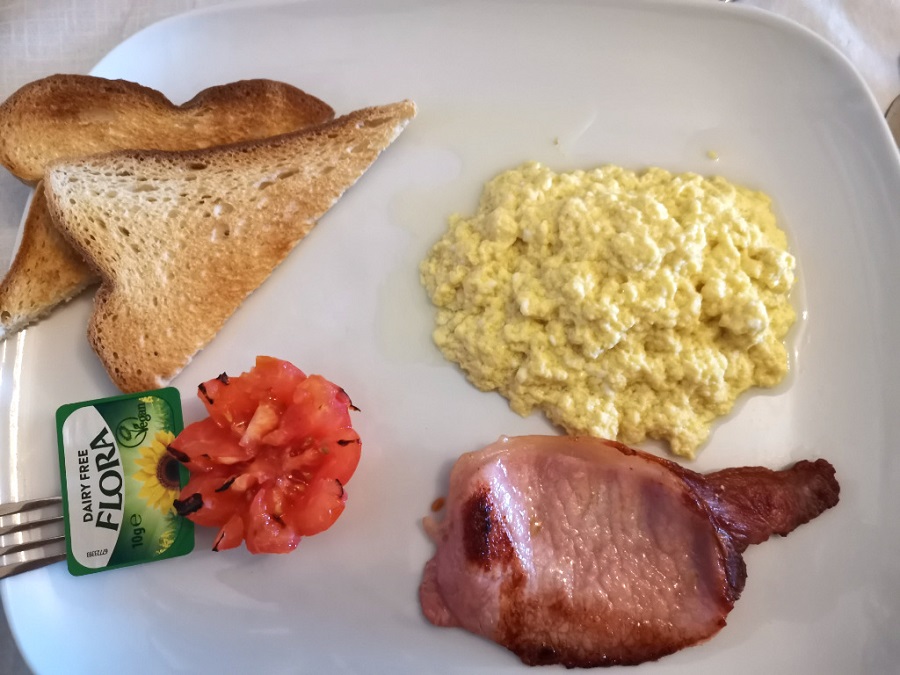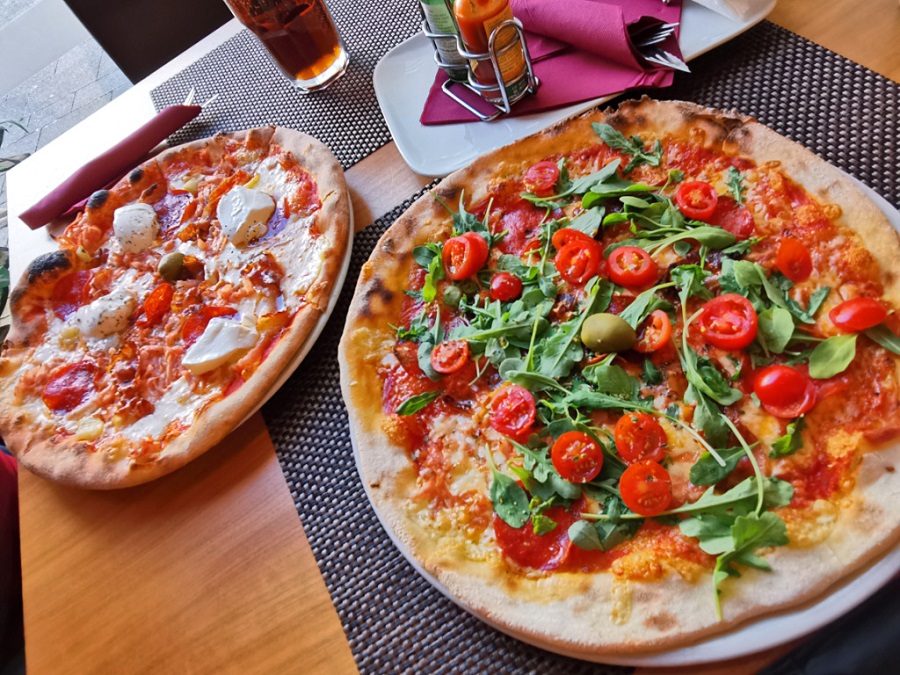Food Intolerances, Gluten-Free And Croatian Tourism
October 22, 2019 - A growing number of people are suffering from food intolerances, which are affecting their restaurant experiences on holiday. A diaspora view of the Croatian tourism restaurant experience.
Across the world, one in ten people suffers from IBS (Irritable Bowel Syndrome) – a chronic painful condition caused by food intolerances. 1% of the world's population shows symptoms of Coeliac disease, while 20-30% carry a gene associated with a genetic susceptibility to Coeliac disease. There are also food intolerances like Crohn's disease where, according to CCFA foundation, in the United States alone there are approximately 33,000 new cases per year.
I visit Croatia at least once or twice a year. As a long-time sufferer of IBS, this topic is close to my heart, or better, to my gut. I try not to let my condition prevent me from living life to its fullest and that includes travelling. My condition was developing slowly, with each year getting worse. I’ve been feeling judgmental eyes on me when asking for certain food in the restaurants for a long, long time. Asking to use toilets when there is no time to sit and order a drink to be granted permission to do so and you are already feeling singled out, judged and shamed. This condition taught me one thing, in order to live, I have to forget about the shame, but I admit, I am still apologising when asking for gluten-free dishes in a restaurant.

What exactly is IBS?
A chronic condition whose symptoms include abdominal pain and bloating, excessive gas, distention, a noisy abdomen and diarrhoea or constipation (intermittent), even fatigue and migraines. While the majority of doctors these days will recognise the condition and diagnose it, they don’t have much of a track record in fixing the problem. In reality, they can’t pinpoint one cause of it. It is complicated and complex. One thing they know is that certain types of food are triggers. Food that contains so-called FODMAP, or fermentable oligosaccharides, disaccharides, monosaccharides and polyols. I hope you had fun pronouncing that.
In recent years there have been some trends that might be the reason for certain skepticism among the general population. Suddenly it was very fashionable to eat only gluten-free, or drink soy milk and I'm aware that type of behaviour caused some people to ridicule it. The truth is that there is a large number (and it's growing by the day) of people like me, with genuine gut problems and food intolerances. Food intolerances are not the same as food allergies or food hypersensitivities where an immune reaction is developed, usually very quickly after ingesting an allergen, for example shellfish, peanuts and so on.
So, to get back to my question, where is Croatia standing in offering certain food options in the restaurants, hotels, bars etc?
This year I spent a few days in Zagreb, many more days in the area around Nin/Zadar and a few in Omis, Dubrovnik, Peljesac, and Mljet. I ate in all of those places. There are some lovely people in the hospitality sector and some not worthy of mentioning. There are restaurants and restaurants, like everywhere in the world. Some say, why would a restaurant owner have to deal with all kinds of food intolerances and allergies?
I do understand it is a hassle, but if you want to offer your customer an enjoyable experience it takes a certain amount of effort. Most of us sufferers are preparing in advance, trying to research the restaurant online. So, a good website is a must, with up-to-date menus and all relevant information about most common allergens.
If I get the information that the staff is willing to accommodate me with gluten-free and dairy free versions, then I'll choose that restaurant knowing I’ll have the option to find something that I can eat without consequences. Menus in the restaurant with detailed ingredients for each meal would be a major help. I am used to carrying a little bottle of oat milk with me if I want to enjoy my coffee in a bar, because I still apologise when I have to order something like that. There was one exception on that trip - Zagreb. It is a city that has more options and it is certainly standing out in a positive way when comparing it to other places I visited.
The worst part was around Nin. I was staying 4 km from Nin and the search to find gluten-free pizza led me all the way to Zadar, to the only pizza place (a really good pizza place) that had an online site stating “We do have gluten-free”.

Let me give you another example. Not even a month after my return to Ireland, I was on another trip, to Northern Ireland. In a place called Portrush we stayed in a B'n'B which has been in business for 20 years. An old and warm place with several rooms and a saloon for breakfast. When it comes to breakfast, that was the first place for a long time where I didn’t feel I had to apologise about my specific food needs. I was offered multiple choices, from different breakfast gluten-free cereals, gluten-free toast, to the choices of dairy-free milk, rice, oat or soy milk, dairy free butter... They even made me scrambled eggs with oat milk. I paid the regular price, like any other visitor. That is something I will remember for a long time. I felt like “normal” people feel when they want to enjoy themselves on their holidays.
That is the difference between sufferers and fashionable fussy eaters. Sufferers want to be normal, to feel like a normal person but our conditions prevent us to be so. While fussers want to be different from others.
To conclude, Croatia as a tourist country has to give more thought to this topic and act more eagerly and quickly. There are still a lot of tourist places where you can’t get gluten-free options and definitely not dairy free ones. I saw supermarkets where there is a variety of gluten-free breads instead of a few, but then the use-by-dates expired weeks ago and they're still sitting on the shelves. Next time, the manager will not order any, as it doesn’t sell. Food intolerant people are not a thing of the past, sadly the numbers are growing and the education about those issues is important for anyone in the food business and definitely in the hospitality sector.
Learn more about the issues in Croatia in our lifestyle section.
Croatian Company from Koprivnica Launches ''Magic'' Gluten Free Dessert
As Poslovni Dnevnik/Marta Duic writes on the 19th of August, 2019, the Croatian company Sana Delicatessen, based in the continental town of Koprivnica, has launched a brand new product this summer - Magic, which is presented as the only fresh gluten-free dairy dessert on the Croatian market. Although it is best known for hummus, the company also has other trump cards that are winning over buyers even outside of the Croatian market.
"Over the last five years of doing business, we've noticed that more and more parents are choosing desserts and sweets more carefully for their children. Gluten-free products are increasingly popular, which is often unfortunately a necessity (for those with celiac disease) and so we prepared Magic with this idea in mind. Sana Magic sticks come in several flavours, with raspberry pieces, apricot and cocoa and hazelnut, and the first reactions from the market are positive and above our expectations. We're always moving step by step, and so we started with the Croatian market first, and then we're planning to export,'' said Silvija Repić, the director of this Croatian company.
From the very first eight products in the range, they have reached almost 150 products today. According to Repić, Sana is still the most well known for its Sana Hummus spreads, and this subcategory is expanding and becoming interesting to other companies from Croatia and from abroad. She noted that other products, such as Sana's premium spices for HoReCa customers, apple chips with chocolate, tahini, ketchup are soon to be developed properly. Sana's team currently boasts eleven permanent employees.
"New products, a higher number of customers (especially in the HoReCa channel), more delivery points and exports are intensifying the business and requiring job creation. We're also planning to further increase our staff and the pace of that will be determined by our further business success. This year, we've hired one person and we plan another one by the end of the year,'' Repić explained, pointing out that they are intensively seeking new export opportunities to other markets in the region and beyond.
"Sana Hummus is a leader on the Croatian market, and with growth in Slovenia and new products, we have achieved business growth rates of around 30 percent.
Slovenia is still our largest export market with chocolate chips and Hummus spreads and new spreads like Guacamole, MelanSana and Thai Salsa. Since the beginning of the year, we started exporting to Switzerland with a new product under the Bonmahl brand - a mixture of cereals and spices which is a kind of 'superfood'. The sales volume of Bonmahl in Switzerland far exceeds that in Croatia, but when it comes to the development of the Croatian market, we're just getting started,'' Repić noted.
This Croatian company works with almost all major retail and hotel chains, and have found their way to specialised stores.
"Entering new products into the HoReCa sales channel is different, the chefs are usually curious and interested in new products, but HoReCa requires a lot of time, investment and personal access to every customer," Repić explained.
She also pointed out that a small business like Sana must take extreme care of its profitability.
"Continuous investment in new products, markets and employees has resulted in increased sales and increased brand awareness, and each investment has a positive impact on the business," Repić concluded proudly.
Make sure to follow our dedicated business and Made in Croatia pages for more information on Croatian companies, products and services.
Crodux Filling Stations Across Croatia Have Expanded to the Gluten-Free Market
In an effort to provide their customers with an even greater choice and better products, Crodux, in collaboration with health food company Bosk, has decided to expand the range of products at their filling stations to gluten-free snacks and desserts.

